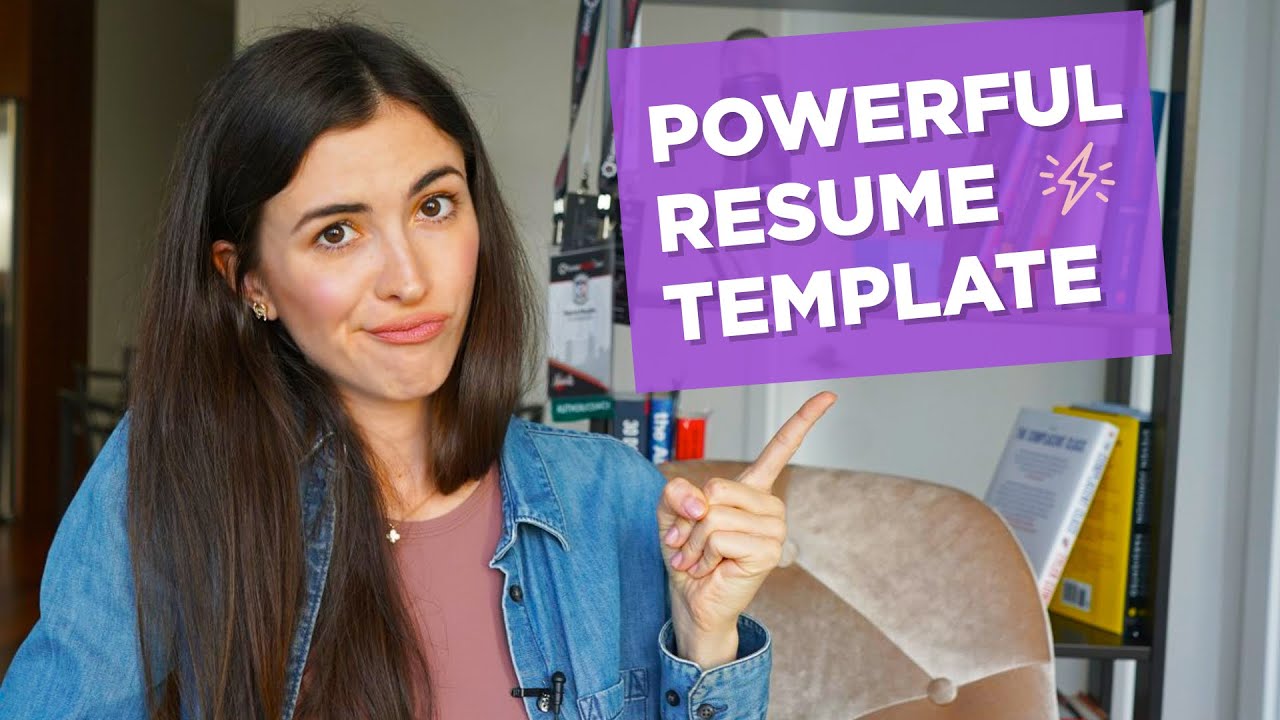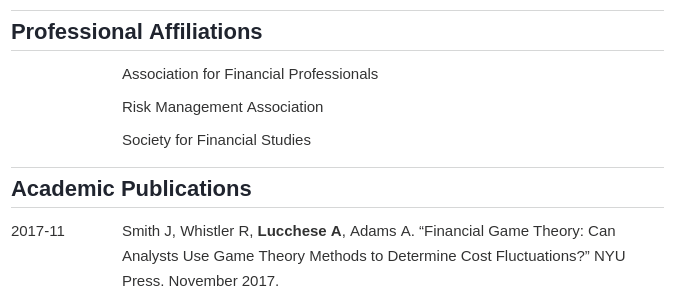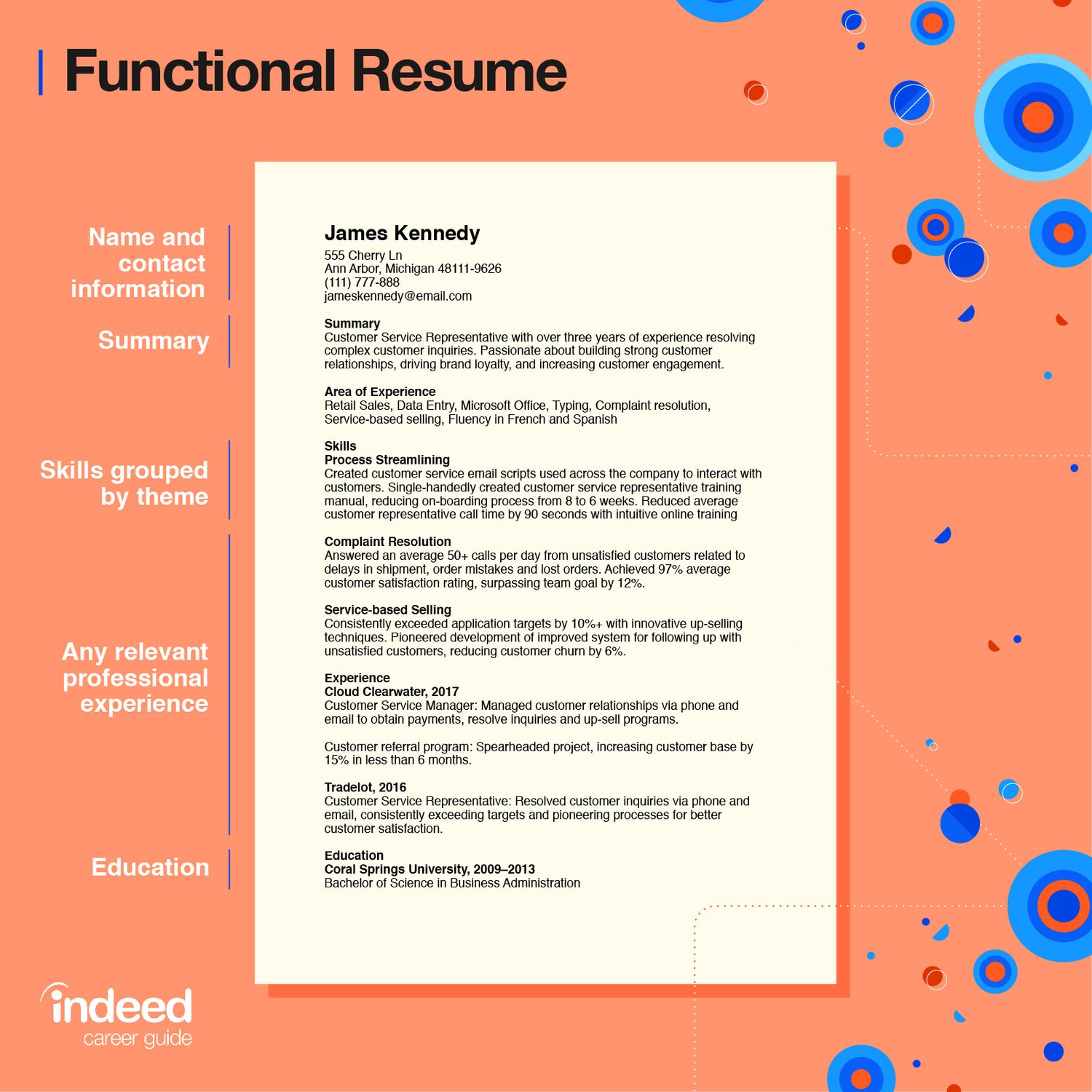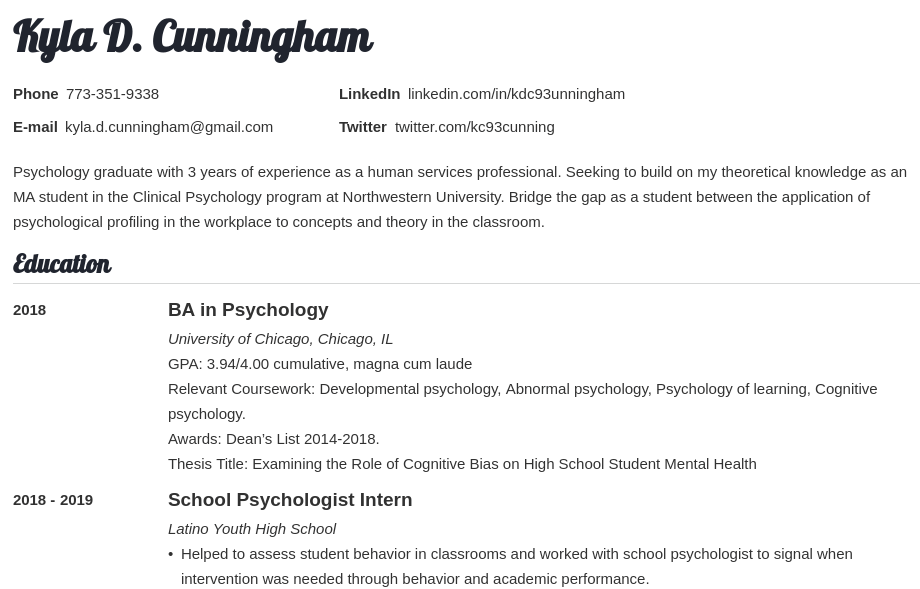Top 5 Effective Guides For Writing A Grad School Resume Template 2021
What Should A Grad School Resume Include?
A resumé is required for most graduate school applications. What, however, constitutes a graduate school resume? What distinguishes it from the one you use to apply for jobs? These questions can make grad school resume writing seem daunting, but it isn't as difficult as it appears.
We'll go over everything you need to know about how to write a resume for graduate school, including why you need one, how a graduate school resume differs from a standard work resume, what you should include in your grad school resume, and how to make your resume stand out.
Why do you need to submit a CV for most grad school applications if you're applying to school rather than a job? In essence, a graduate school resume serves the same objective as a resume for a job: it allows institutions to learn more about you and your skills.
Grad programs, like many other businesses, receive a large number of applications, so they need a quick and easy approach to see why you'd be a good fit for their program. This is something you can demonstrate on your graduate school CV. Grad schools may examine what you already know and how you've proven yourself by looking at your schooling and professional experience, which can help them decide if you'd be a suitable fit for their program.
In the following sections, we'll go through what you should include in your graduate school resume and how to demonstrate that you're a well-qualified applicant.
Every CV is different, however many graduate school resumes contain the same material. Although not all of the parts listed below will relate to you or your graduate program, going over the list will ensure you don't forget anything important.

How to write a strong resume/CV (WITH A TEMPLATE) (Get Accepted to Your Dream University Part #10)
Header
Like a resume for a job, you should add a beautifully formatted header with some basic information about yourself at the very top of your resume. Your name should be on the first line, and your contact information, such as your phone number, address, and email address, should appear on the second line. The header's objective is to make it simple for schools to figure out who you are and how to reach you.
Education

Education should be the first element of your resume so that graduate schools can easily identify if you meet the program's academic criteria. Make sure to include the school you attended, your dates of attendance, and the degree(s) you received in this section. You could also want to include information like:
Your GPA
Graduation honors you received
The title of your thesis (if you wrote one)
Awards or scholarships
Study abroad programs you attended
A short list of any classes you took that are particularly relevant to the degree program (particularly if you degree itself isn’t that strongly related to it)
Work Experience
This will most likely be the longest section on your resume, and it will list all of your previous jobs and internships. If the program does not specify that you must include volunteer experience in another part, you may also choose to submit it here if you have any.
You can organize your experiences by category (such as "Research Experience" and "Communication Experience"), chronologically (with your most recent position at the top), or by job relevance (with the most relevant jobs first). You should begin each work experience by listing where you worked, your job title, and the dates you worked there.
Use bullet points to highlight your major responsibilities and accomplishments for each job below that (see tips 2 and 3 in the next section for more advice on how to do this).
Publications
Put academic or professional works, such as academic papers, books, book chapters, or reports, in their own area if you created or coauthored them. Include the title of the work, where and when it was published, and any other co authors for each publication.
Certifications And Skills
List any certificates you acquired in addition to your degree and/or any talents you have that are relevant to the degree program in their own section. Include the following items as examples of what to include:
Skills in a foreign language
Computer systems in which you are knowledgeable
Relevant certificates that you have acquired
Awards you've won but didn't include in your education section
Extracurricular Activities
This is an optional area that you may choose to leave out due to length constraints or lack of significance. Some people, on the other hand, choose to list extracurricular activities if they believe they are relevant to the graduate program and/or reveal a significant aspect of their personality.
If you're applying to a PhD program in microbiology, don't go on and on about your amazing acapella group, but it's fine to highlight groups or activities you've been a part of if they're relevant to the program.
Other extracurricular activities, even if unrelated to the degree program, may be included if you believe they help demonstrate your talents and interests. You can mention things like tutoring other students as an undergrad if you think it will help you demonstrate your ability to teach as a graduate assistant.
You can also mention an extracurricular activity that you spent a lot of time on to demonstrate your work ethic and commitment to a program.
How Do I Write A Resume For A Graduate School Template?
Your education section, like your resume, should always be at the top of your CV, just after your header (or somewhat later if you opt to include a "Research/Teaching Interests" section before it). Include the majority, if not all, of the following information:
Each university you attended name and location (city and state)
Your major, minor, and degree type
Your graduation date (assumed) (month and year)
The title of your dissertation (if applicable)
Your thesis advisor's name(s)
Related courses to your field of study
Coursework that does not lead to a degree or study abroad programs
Your cumulative grade point average
How Do You Write A Resume For A Masters Degree?
To de-emphasize the dates, make better use of horizontal space.
In the education area, list any relevant coursework.
To highlight noteworthy coursework or student projects, add a "graduate student" section to the professional experience section.
Make a section for "Skills."
Does A Grad School Resume Need An Objective?
No, you don't need an objective for your graduate school resume in most cases.
Graduate school resume objectives are much less logical than typical resume objectives. Most graduate programs demand a personal statement, which is where you'll have the best chance to explain why your background and interests make you the best candidate for the program.
If you're applying to graduate school while still in college or shortly after graduation, your personal statement should demonstrate that you have precise goals in mind while applying to that particular graduate program.
In contrast, your CV is where you'll highlight your professional and research experience, publications and presentations, as well as any relevant organizations or ties to the school you're applying to.
If your previous roles don't appear to be directly related to the program you're looking for, and you need a means to underline how your resume's narrative supports your application, a graduate school resume objective makes sense.
How Do I Write A Resume For Grad School?
If you're considering graduate school, you're probably concerned about your prospects of being accepted. What can you do to improve the competitiveness of your resume? What qualities do graduate schools seek in applicants?
Graduate colleges assess many of the same variables as undergraduate schools, which may surprise you. Maintain your good practices from high school—perhaps on a larger scale—and you'll be well prepared for graduate school.
Of course, if you've already completed your undergraduate studies and entered the workforce, some of this advice won't apply to you. Don't be concerned. Work experience is valued by graduate institutions as well.
Strong GPA And Test Scores
Few things matter more to graduate schools than a good GPA and test scores when it comes to academic achievements.
If you're still in college, give it your all in all of your classes, especially those that are relevant to the graduate program you want to pursue. Make use of the resources available to you, such as tutoring, study groups, and the office hours of your instructors.
Significant Work Experience
Gaining relevant experience is another approach to improve your resume for graduate school. Work experience distinguishes you as a well-qualified individual who will add value to the learning environment. You've demonstrated your ability to excel outside of the classroom in a field that's relevant to this position.
Volunteering
Another excellent strategy to improve your graduate school resume is to volunteer (and your community). As always, finding volunteer work relating to the degree or field you're interested in is ideal. You will obtain important experience and display outstanding personal characteristics in this manner.
Extracurricular Involvement
Extracurricular engagement, especially if it's relevant, looks excellent on a résumé. Graduate schools want to know that you'll be a valuable member of their community. Will you interact with your friends and neighbors? Will you come up with new ideas? Do you think you have what it takes to make an impact on campus and in the world? All of these issues pique the curiosity of graduate school admissions committees.
Related Coursework/Certifications
Finally, graduate institutions will almost probably require your resume to include relevant coursework. Some graduate schools even have prerequisites, so make sure you've taken all of the essential courses before applying. In other situations, graduate schools will still accept you, but you will be required to take additional courses once you arrive, which will require you to commit more time and money in order to get your degree.
Should I Submit A Resume Or CV For Grad School?
A grad school application resume is required for nearly all graduate programs. Students must create a curriculum vitae (CV) or academic resume that details their educational background, work history, research experience, internships, volunteer activity, and academic achievements.



